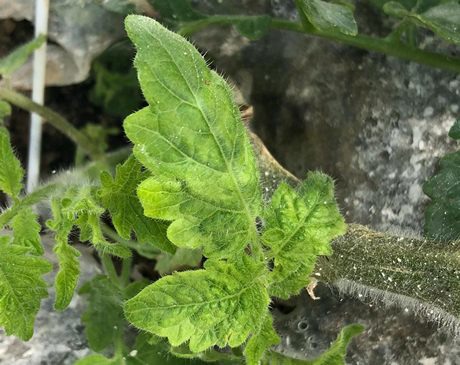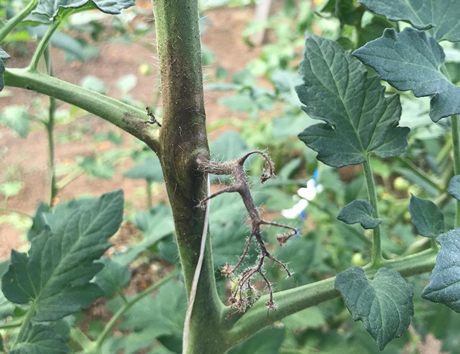The Tomato brown rugose fruit virus (TBRFV or ToBRFV) is unfortunately present in Sicily. Walter Davino shared the terrible news. He is a professor of plant pathology at the Palermo University. In an interview, he told to FreshPlaza how he discovered this pathogen.
 In the photo above, kindly provided by prof Davino, it is possible to see the characteristics ‘colour breaks’ on the berry.
In the photo above, kindly provided by prof Davino, it is possible to see the characteristics ‘colour breaks’ on the berry.
The expert said, “In the last few months, I received tomatoes with symptoms that could reveal the presence of a virus. We immediately started working on these samples. A few days before the Christmas holidays, we finally found the pathogen agent responsible for that symptoms”.
This pathogen agent is called Tomato brown rugose fruit virus. At the moment, it is not widespread in the world.
“It has been spotted by the EPPO in Israel (2014), Jordan (2015) and Mexico (2018). Recently, it has been found in Germany and now, sadly, in Sicily too”.
 Leaf showing the inter-nerval pattern caused by TBRFV
Leaf showing the inter-nerval pattern caused by TBRFV
The professor continued, “It is a very dangerous virus because it can be transmitted in multiple ways. It is crucial to be careful about the contact between each plant and the operator working in the field. There are pieces of evidence showing that it can be transmitted through the seed, as well”.
Watch the video-interview to Prof Walter Davino
Davino explained, “I want to point out that this problem could become bigger than expected if it is not faced properly. If it were possible to form a ‘crisis committee’ involving the University, the Regional Phytosanitary Services, the MMR, the seed companies, nurse farmers and producers, then maybe this virus would just be a bad memory within two years.
 The trunk of the infected plant could be darker and have necrosis
The trunk of the infected plant could be darker and have necrosis
Davino concluded, “We followed all the steps necessary, according to the law. We isolated the pathogen and we checked its pathogenicity. Through my director, Prof Stefano Colazza, we notified the Regional Phytosanitary Service which immediately started acting to contain the spreading. Now, the RPS is researching the right protocols and strategies to stop the virus. In this case, synergy is crucial to solving the whole issue”.
It is possible to visit the EPPO website by clicking here and see further photos in order to immediately recognise the symptoms.
